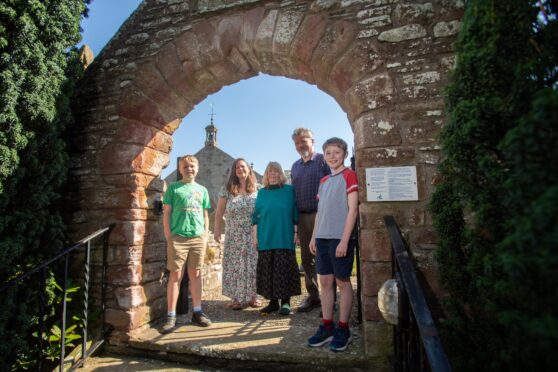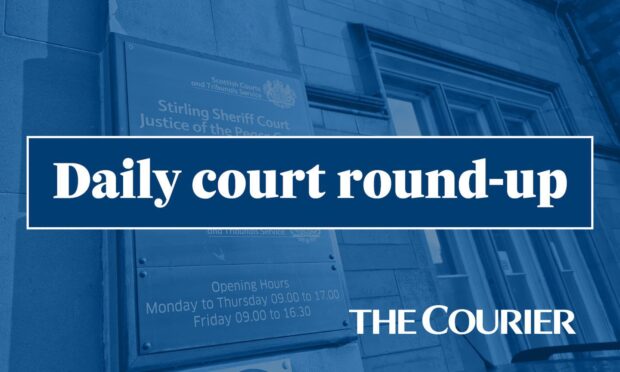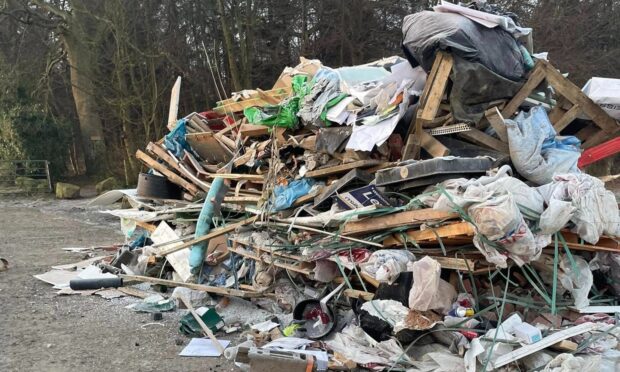A Tayside Muslim-convert has described finding himself at the centre of a new international cash-for-terror dossier as a “storm in a teacup”.
Ex-Lawside Academy pupil James McLintock, 52, who changed his name to Yaqoob Mansoor Al-Rashidi, is the president of the Al Rahmah Welfare Organisation (RWO) which the US Treasury has alleged is providing money for al-Qaida, the Taliban, Lashkar-e-Taiba and other Afghan extremist groups under the guise of helping orphans.
McLintock is on the department’s “specially designated global terrorist” list which freezes any property he has within US jurisdiction and bans Americans from doing business with him.
RWO and McLintock have now been included in a new report by Los Angeles financial-intelligence firm The Camstoll Group on the use of social media by blacklisted terrorism financiers and fundraisers for al-Qaida and Islamic State.
McLintock – who has “categorically denied” allegations made by the US Treasury that his Pakistani orphanage is providing money for extremist groups – was named in the report alongside the likes of Hajjaj Fahd al-Ajmi; a financier of a Syrian rebel group linked to al-Qaida who maintains active social media accounts on multiple platforms, including an Instagram account with more than 1.3 million followers.
McLintock told The Courier: “Are they being serious? I have 148 followers and Hajjaj 1.3m.
“Why mention RWO? A storm in a teacup. Malafide.”
McLintock also accused the Camstoll Group and the US Treasury of working “hand in hand with storytelling”.
He said: “ RWO is a legitimate charity. We never got a penny off social media.
“The charity commission investigated in 2014 and no such problems found.”
The Camstoll Group report stated: “Under the false guise of charity, James McLintock set up RWO as a front organization to finance militant activities for al-Qaida and other extremist groups from donors in the United Kingdom, the Persian Gulf, and elsewhere.
“RWO and James McLintock relied on social media to support their global terrorist fundraising activities from their base in Pakistan, posting instructions for donors on how to transfer funds to bank accounts for the organization in Pakistan and the UK.
“The Facebook and Twitter accounts for RWO and James McLintock remain active, soliciting donations as of early April 2016.”
Camstoll’s senior management team consists of former officials from the US Treasury Department’s Office of Terrorism Financial Intelligence, together representing decades of combined experience in global illicit finance and financial intelligence.
Though terrorist financiers may lose their bank accounts after being blacklisted by Treasury, “in many cases, they are still able to maintain and establish new social media accounts, often on the same social media platforms they used for their terrorist activities,” according to the report.
The report details cases of alleged financiers of terrorism who hold accounts on US-based social-media platforms, including Twitter, Instagram and Facebook.
“If they’re designated as financiers of terrorism, why should they be allowed to stay open on social media?” asked Matthew Epstein, Camstoll’s chief executive.
Facebook said it has “zero tolerance for terrorists” and that it has a process in place to identify and suspend users who have been sanctioned.
Twitter declined to comment, but in February announced it had removed more than 125,000 accounts for “threatening or promoting terrorist acts” since mid-2015.
A spokeswoman for the US Treasury said: “The use of social media by terrorists, to fundraise and engage in other activities is a concern, and we employ a variety of measures to combat it.”
The agency, she said, works with social-media companies to combat terrorists on the web.
US authorities have the power to tell companies to delete accounts of blacklisted people or risk a fine of millions of dollars.
Historically, however, Treasury hasn’t pursued such cases, experts say, because of a lack of resources, potential intelligence value of postings, and concerns about free speech.
Overall, al-Qaida and Islamic State claim their social-media efforts have raised “millions” of dollars, the Camstoll report says.










